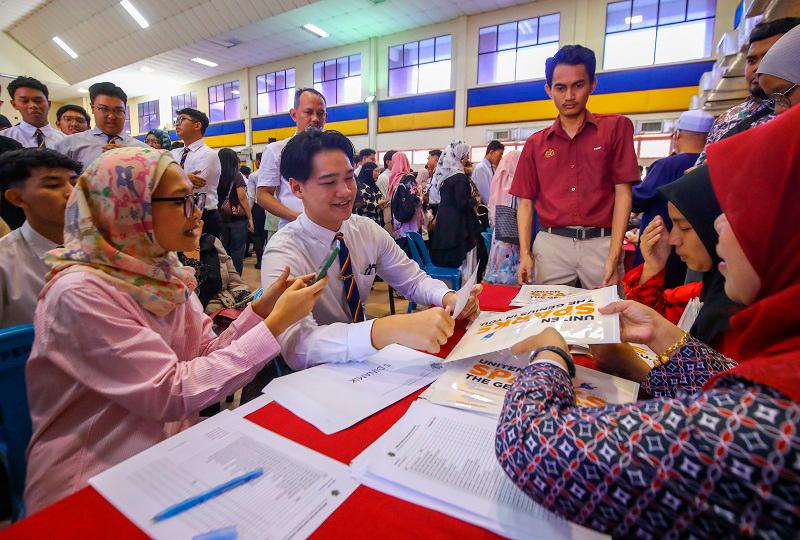PETALING JAYA: With thousands of students missing their Sijil Pelajaran Malaysia (SPM) examinations each year, urgent reforms are needed to make the education system more inclusive and responsive to the diverse challenges faced by Malaysian youths, says an educationist.
National Association of Private Educational Institutions secretary-general Dr Teh Choon Jin said early and comprehensive support is key to helping at-risk students, with a focus on attendance, academic performance and behaviour to identify those needing intervention.
Speaking to theSun, he said the current system is overly rigid and exam-centric, and does not accommodate students facing learning difficulties, mental health struggles, family issues or financial pressures.
“Not all students learn the same way, and not everyone has a smooth journey in life. We need a more flexible and compassionate system – one that recognises diverse learning styles and life circumstances, rather than punishing students for things beyond their control.
Teh emphasised the need for well-resourced intervention programmes in underserved and rural schools, and for teachers to be trained in socio-emotional and trauma-informed approaches.
He said many students who skip SPM are not disinterested in education, but are driven by personal or socio-economic hardship. Financial pressure is a major factor, particularly for students from B40 families who feel compelled to enter the workforce early.
During the 2024 SPM results announcement, Education Director-General Datuk Azman Adnan revealed that more than half of the 6,246 students who skipped the exam last year had already started working. Of the number, 57.8% were employed outside their school zones, 35.5% faced family-related issues and 4.7% were dealing with health problems.
“Instead of labelling them dropouts, we need to recognise that many are being pushed out by circumstances they can’t control.”
He added that some families and employers may not understand the long-term value of an SPM qualification, often prioritising on short-term income. As such, clearer and more relatable public awareness campaigns are needed to explain how the SPM certificate can open doors to better jobs, vocational training and further education.
“When more students leave school without completing their SPM, the impact goes beyond the individual. It affects society as a whole,” he said, adding that without the basic qualification, many youths are trapped in low-paying and unstable jobs.
Teh warned that this deepens social inequality and limits Malaysia’s potential in a fast-changing, knowledge-driven global economy.
“To bring dropouts back into the education system, the process must be flexible, accessible and non-intimidating. Not everyone can complete SPM at 17 – and that’s okay.”
He proposed the setting up of more community learning centres, options for blended and online learning, and recognition of prior learning. Free resits, waiving of exam fees and collaborating with NGOs and employers can also help ease the path back to education.
“Most importantly, we must change the mindset that SPM is only for teenagers. It should be seen as a second-chance opportunity for anyone, at any stage of life.”









